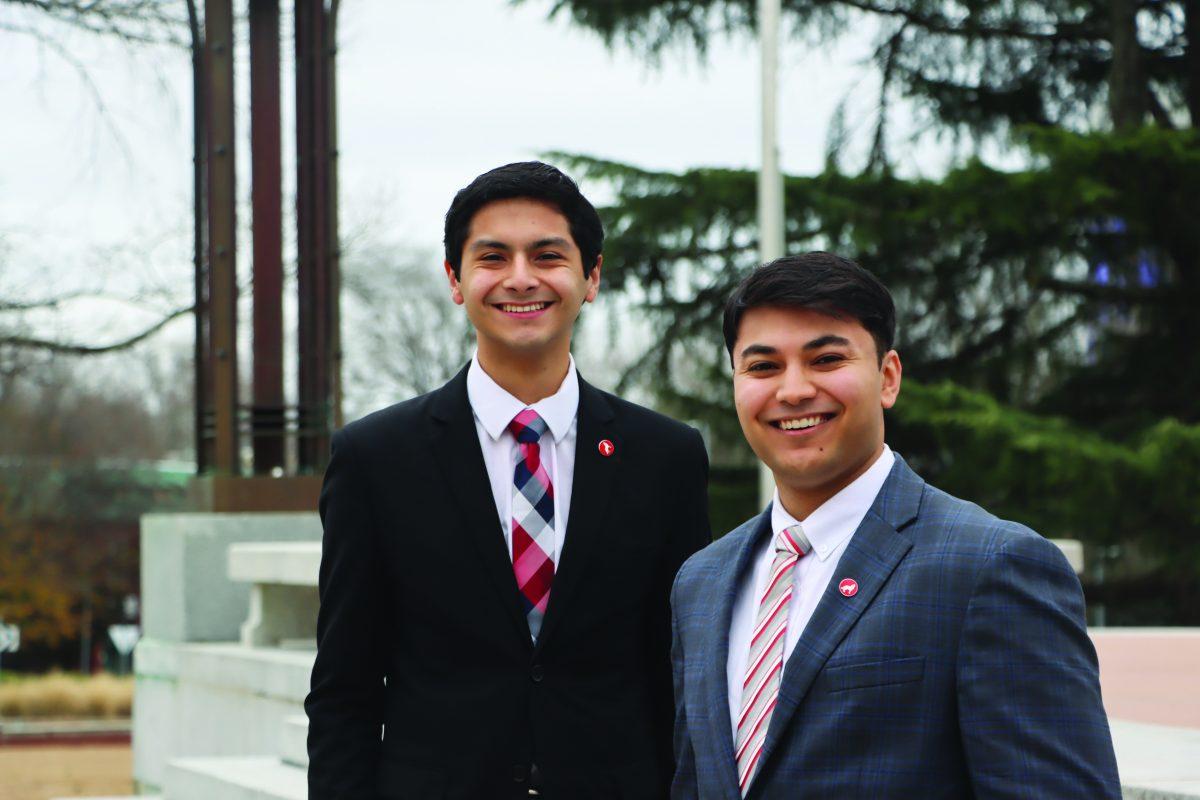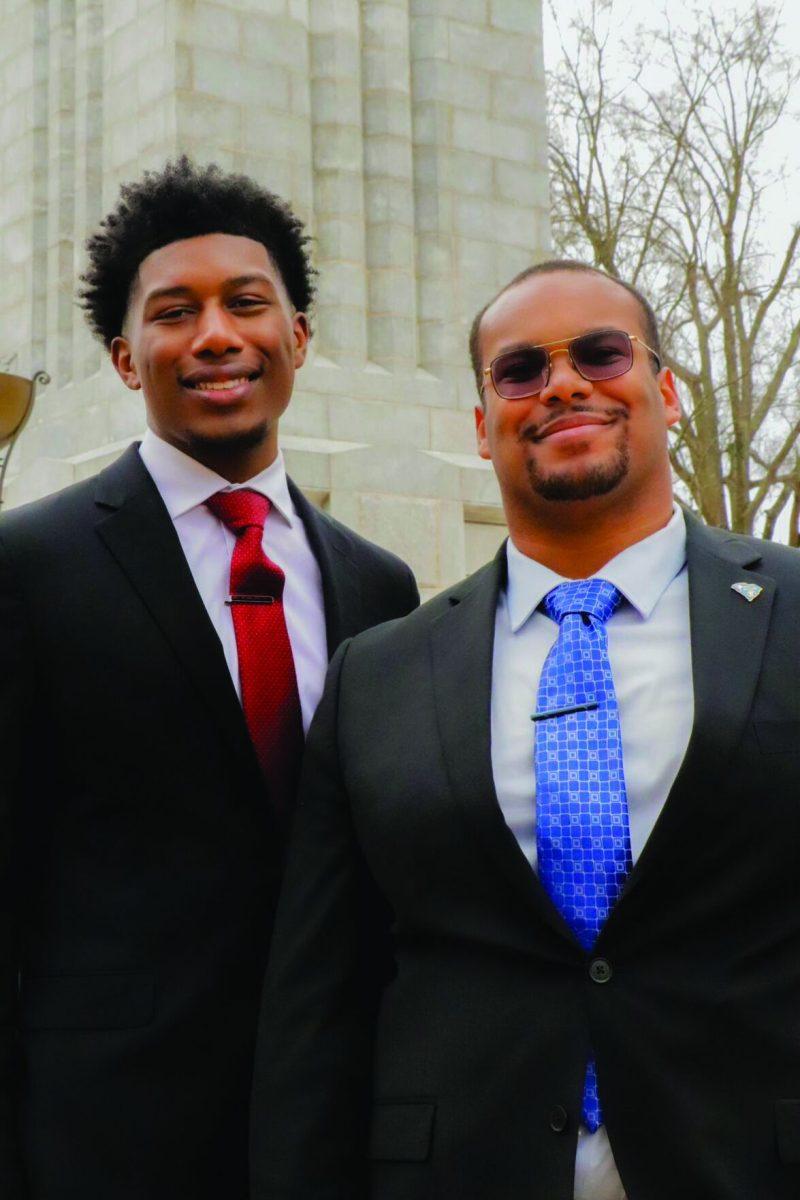Student Government (SG) has operated on NC State’s campus since 1921 and aims to act as a voice for students to University administration. The executive branch, treasury branch and legislative branch of SG work together to serve the student body.
According to Miles Calzini, a doctoral candidate in chemistry and the student senate president, SG works as a liaison between students and administration.
“Where our skill set [is], I would say, is to translate what students want and bring that to the administrators because we have relationships with them, and hopefully, we’re pretty good at talking to them and using language they’ll understand,” Calzini said. “And then in reverse, when administrators tell us things, we can help disseminate that knowledge and say it in a way that students will have an easier time understanding, that they can relate to better.”
McKenzy Heavlin, a graduate student in electrical engineering and student body president, said SG has influenced major changes on campus throughout its history, and SG advocacy led to the start of the Wolfline in 1980.
According to Heavlin, the executive branch consists of the student body president, student body vice president and the executive cabinet. The executive branch works toward the goals in the executive platform, which the student body president and vice president establish during their campaign in the spring election.
“It’s really up to the strategic vision of the president and vice president, especially to see it through,” Heavlin said. “If we want to get something done, we have a lot of resources at our disposal and a lot of support across campus to get it done.”
Harrison Andrews, a fourth-year studying communication and political science, is the student body treasurer. Each year, $14.16 in student fees for each full-time undergraduate student is designated to SG, and Andrews said the Treasury branch manages this money.
“The Treasury, there’s two big functions for us,” Andrews said. “We are responsible for the internal management of our money, so that’s creating the annual fiscal year budget, that’s making sure we’re expending money responsibly and correctly, making sure that we’re accounting everything properly, and keeping records of it all. … And then on the other side, we manage our appropriations process. So the SG appropriations process is one of the largest pools of money on campus for student organizations to apply for. So we’re required by our statutes to give out money to organizations. That’s also the big purpose of our student fee, is to allocate that money out to student orgs.”
According to Andrews, since 1998, SG has given over $2 million in appropriations funding to over 800 organizations on campus, impacting about 150,000 students.
SG has a total of $424,000 in the budget for the 2022-23 fiscal year. Heavlin said he has witnessed SG’s power to drive change on campus using this funding; in 2021, while Heavlin was student body vice president, SG used their unspent funds to finance a full-time position in the Pack Essentials program, which works to support students experiencing food and housing insecurity. He said this choice has had a lasting impact on Pack Essentials services.
“We were able to fund it for three years, and so that position is still funded by that work we did,” Heavlin said. “And one of the caveats that we had was saying, ‘We’ll fund this for the first three years, see how successful it is, and if it’s successful, the University needs to find funding for it, to bring it on full time.’ So we’re continuing that conversation this year with University leadership in DASA about funding acquisition full time, because it has been majorly successful.”
The Student Senate constitutes the Legislative branch of SG. The Senate includes 72 undergraduate, graduate and non-degree students who represent each school and college at NC State. The Senate doesn’t have power to directly produce change, but meets regularly to pass legislation, which establishes SG’s official stance on a subject matter and influences administration, Calzini said.
Calzini said the Senate provides guidance on tuition and fees.
“There are places where [Student Government has] more influence than others,” Calzini said. “One big example is the fees process — or tuition and fees, but really about fees — because the UNC Board of Governors, and generally just most people, do take students’ opinions on that pretty seriously. I would say that’s an area where we have particular influence.”
Additionally, Calzini said the Senate imparts checks and balances on other branches of SG.
“We confirm appointees, we pass the budget and appropriations as well,” Calzini said. “And we have our own pool of money that we pull from the Finance Committee, which you can apply basically for a grant for one-time large expenses for your student organization.”
Heavlin said administration values SG’s input.
“Students should care about Student Government because especially here at NC State, we are taken very seriously, and I think that’s something that not every student government across the state and across the nation can say,” Heavlin said. “We are very good at making sure that we present things in a way that is palatable to administration, but still achieves the goals that students are looking for. We’re also extremely passionate, and we’re willing to work with students to get things changed, and to get things done, and help them work through their challenges. So I think that’s what I would encourage students to really understand, is the depth of Student Government. We’re involved in a lot of things here, and if we’re not involved in it, then we can be involved with it. Because we can always find someone who will say, ‘Yes.’”













